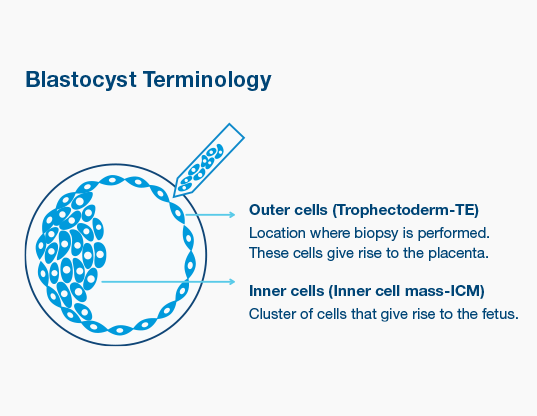What is PGT-A?
PGT-A can improve the chance of a healthy pregnancy
PGT-A is a type of embryo screening that identifies embryos with extra or missing chromosomes, also called aneuploidy. For couples undergoing in vitro fertilization (IVF), identifying these embryos is important when selecting embryo(s) for transfer.


Why choose Spectrum?
Spectrum provides comprehensive preimplantation genetic testing (PGT).
Spectrum PGT can:
Spectrum PGT can:
- Increase the chance of embryo implantation
- Decrease the chance of miscarriage
- Reduce the time to pregnancy
- Reduce the chance of having a child with a chromosomal abnormality
What is the Spectrum testing process?
PGT requires embryo biopsy, the removal of a small number of cells from the TE. The procedure is most commonly performed on days 5-6 when embryos reach the blastocyst stage of development.
The Spectrum embryo testing process is completed in conjunction with an IVF cycle:
- Eggs are fertilized and allowed to grow and develop into embryos.
- A biopsy performed with each of the developing embryo.
- Your embryo(s) remain at the IVF center and is cryopreserved, while biopsy samples are shipped to Natera.
- The samples are analyzed by Natera, and Spectrum results are sent to your IVF center.
- Your doctor determines which embryo (if any) is optimal for transfer to the uterus.
A blood or cheek sample from both biological parents may be required in addition to the biopsy samples. Natera provides complimentary mobile phlebotomy services and blood draw via local sites.
